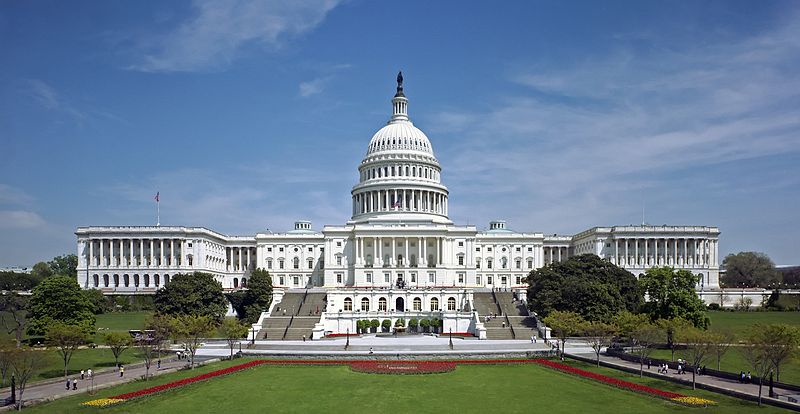
The Nuke Review: May 14 – May 21
May 14
Senator Jon Kyl wrote an op-ed in the Wall Street Journal arguing that offering assurances to the Russians on missile defense is a mistake. Sen. Kyl also says that the Obama Administration should not put cooperation with Russia over protection of the United States.
South Korea rejected a push by US lawmakers to redeploy tactical nuclear weapons to the country. South Korean officials declared that a reintroduction of nuclear weapons to the country will instigate controversy and go against the country’s pledge for denuclearization.
May 15
The IAEA and Iran have agreed to another meeting after two days of talks on Iran’s nuclear program. “The primary focus of our discussions was how to clarify issues related to possible military dimensions of Iran’s nuclear programme,” said IAEA deputy director-general Herman Nackaerts, “We had a good exchange of views and we will meet again on Monday.” The meeting tested the willingness of the Iranians to come to a larger agreement on their nuclear program.
May 16
The group Global Zero issued a report entitled “Modernizing U.S. Nuclear Strategy, Force Structure and Posture.” The report says that nuclear planning for Cold War-style conflicts with an exchange of nuclear weapons is exceedingly unlikely and such planning is a left over from the days of the Soviet Union. The current threats the United States faces today, rouge states, failed states, terrorism, cyber warfare, epidemics or climate change cannot be defended against with nuclear weapons.
The Air Force Chief of Staff Gen. Norton Schwartz criticized the Global Zero report saying that the mixture of land, sea, and air based nuclear weapons acts as a deterrence force.
May 17
North Korea has resumed work on an experimental light water reactor at the North’s main nuclear facility at Yongbyon, and could be operational in 2-3 years. This reactor will allow the North Koreans to produce enough material for one nuclear weapon per year, and in addition to its idle Plutonium production facilities, could significantly increase the number of nuclear weapons it is capable of producing.
Senate Republicans blocked an act calling for more stringent Iranian sanctions saying that the bill needs to include stronger language. Republicans want to add a “use of force” provision stating that it is unacceptable to contain a nuclear-armed Iran, rather the United States must do what is necessary to prevent the country from obtaining a nuclear weapons capability.
May 18
Russian Prime Minister Dmitri Medvedev’s remarks about nuclear war spooked the Russian stock market. The Micex index lost 3.5% of its value after Prime Minister Medvedev spoke.
After meeting with the Czech President, Israeli Prime Minister Benjamin Netanyahu said in a speech that he believed Iran will not take the upcoming nuclear talks seriously. He said, “I have seen no evidence whatsoever that Iran is serious about stopping its nuclear weapons program. It looks as though they [Iran] see these talks as another opportunity to deceive and delay, just like North Korean [sic] did for years.”
The IAEA nuclear chief, Yukiya Amano, will travel to Tehran for another day of talks about Iran’s nuclear program, after two days of talks were regarded as a success. Mr. Amano will talk with Iran’s top nuclear negotiator Saeed Jalili about the status of inspectors and the concerns of a secret nuclear weapons program.
May 20
NATO released its Deterrence and Defense Posture Review that discuses nuclear weapons, conventional forces, missile defense, arms control, disarmament, and non-proliferation. The DDPR states that nuclear weapons are a core component of NATO’s overall capabilities for deterrence and that nuclear weapons along with the right mix of conventional forces and missile defense will be its posture going forward.
May 21
Gyn Davies, the US Permanent Representative to the IAEA warned North Korea of setting off another nuclear test saying, “It would be a serious miscalculation and mistake if North Korea worked to engage in a nuclear test. If there is a further provocation such as a nuclear test, there will be swift and sure reaction by the international community.” These comments were made after it was revealed that the country had ramped up work on its nuclear test site, and also warned the country that more sanctions would be instituted if it did test. North Korea has also resumed building an experimental nuclear reactor, viewed by experts as cover for their nuclear weapons program.
American military inspectors have conducted five inspections of Russia’s Strategic Missile Force (SMF) arsenal over the first six months of the year, according to SMF Commander Lt. Gen. Sergei Karakayev. These inspections were done due to the increased reporting and inspections regime instituted with the ratification of the New START agreement between Russia and the United States.
IAEA Chief, Yukiya Amano pressed Iran to resume inspections into secret atomic weapons work and the Parchin military complex at a meeting in Tehran. Mr. Amano was optimistic after leaving the meeting saying “I really think this is the right time to reach agreement.” The top Iranian nuclear negotiator, Saeed Jalili said that he had “good talks with Amano in this regards and, God willing, we will have good cooperation.”
The Senate passed the Iran Sanctions, Accountability, and Human Rights Act (S. 2101) four days after the Senate held up passage of the bill due to disagreements over certain aspects and language.
May 22
New photos released today indicate that North Korea has increased activity at its nuclear weapons testing site in the north of the country, CNN reports. Mining carts and excavation equipment, including a full mining train, are seen in the images.





